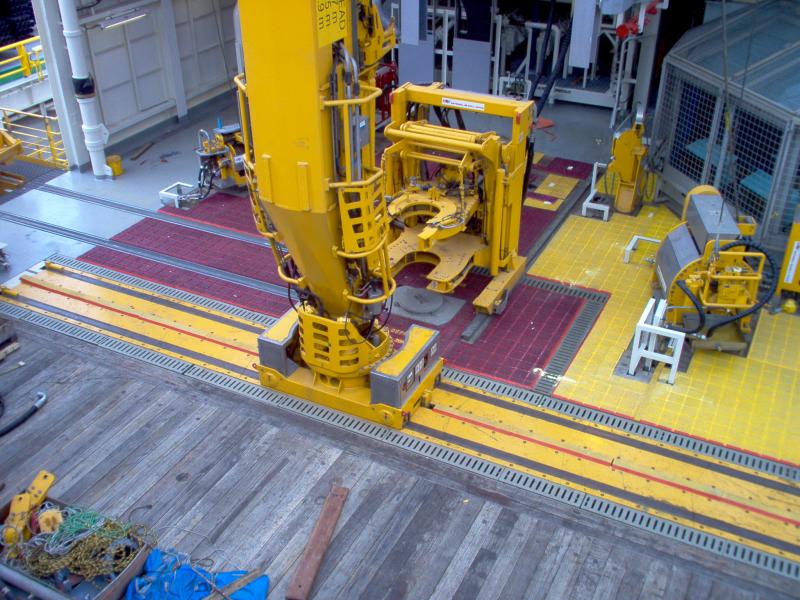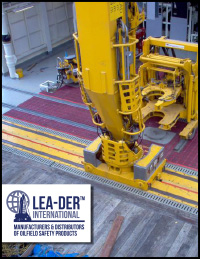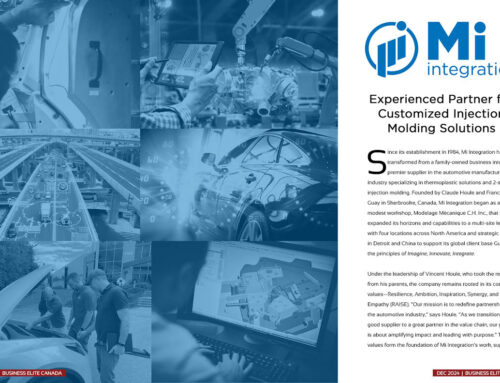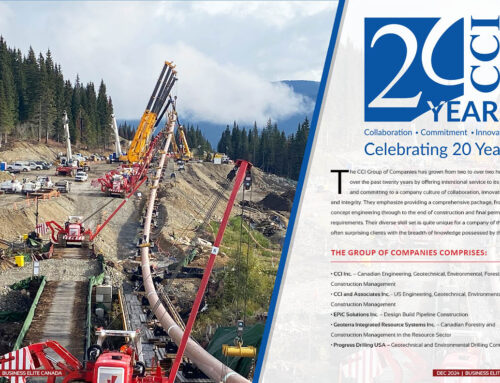One-stop Shop For Human Safety And Environment Protection
By Rajitha Sivakumaran
The arrival of September marks two years since a serious rupture occurred in global oil prices. OPEC’s decision to continue oil production despite an unmatched demand has hit North American oil and gas companies, particularly operations in Alberta, especially hard. But one Albertan company is living up to its name by steering Canada’s oil and gas sector abroad.
Lea-Der Coatings, headquartered in Spruce Grove, Alberta, has been manufacturing safety equipment for the oil and gas industry for over two decades. With a background in business and marketing, its president, Darrell Demers, started simply as a sales rep before advancing to management level positions and then ultimately purchasing the company in 2007. Demers’ achievement mirrors his company’s success; despite the economic downturn, Lea-Der continues to expand its global footprint.
“Some of the products that we sell or manufacture, I can’t say that we don’t have competition, but we are one of the elite vendors, a vendor by choice. I believe there isn’t one drilling contract that doesn’t have our equipment in Canada,” Demers said.
The company began going international in 2006, which considering the ups and downs the industry has faced since then, was a smart move. Beginning mostly in the U.S. and Algeria, Lea-Der has now branched out to Southeast Asia, Australia and Mexico with a notable presence in the Middle East since 2013. Now the company has distributors in countries that are part of the Gulf Cooperation Council, like the United Arab Emirates, Saudi Arabia and Kuwait. More recently, Lea-Der opened a distribution centre in Oman in order to have a presence in the local market and supply orders more efficiently.
It hasn’t been continuous smooth sailing, however, even for Lea-Der. Due to a significant loss of sales, Lea-Der has had to reduce its workforce by 60 per cent. The current downturn has taken the industry to a level that Demers has not seen in his entire career with Lea-Der. “Even in 2009, we were still producing a vast amount of orders, but this downturn has really affected a lot of different aspects of business,” Demers said.
Talks are currently transpiring between oil producers and the Albertan government in order to revitalize the industry, but until discussions result in concrete decisions, the sector will continue to adhere to restrictions and stringent policies. “We hope that the Alberta government would see that this is a very important sector in the economic development of the province,” said Joe Hak, Lea-Der’s vice president.
Expansion beyond borders
So how has Lea-Der been staying afloat? Demers points to the company’s involvement in the international market, particularly exploring new territory. The case in point is Iran and the implications of the sanctions that were lifted a short time ago. Iran is one of the top five countries home to the largest oil reserves in the world, and according to Demers, Lea-Der’s human safety and environmental protection products are very important to Iran’s drilling industry. Furthermore, other countries like Germany and Italy have been operational in Iran for a year now. Canada, on the other hand, has been slow to get in on the action, which is why Lea-Der recently signed a deal with a reputable company to facilitate expansion into this newfound market.
“Lea-Der has taken the lead as one of the first major Canadian companies to enter the Iranian market and we would be happy and delighted to work with any company in Canada that has desires to enter into the global market,” Hak said.
The upside of being in the safety business is that there is an ever-present demand. “Everyone wants human safety, everyone wants environment protection,” said Hak. But in North America, he explained, companies are focused only on the bottom line at present. “In the Middle East conversely, companies are still buying rigs, they’re still hiring people and they’re still expanding. The difference is a national oil company owned by the state must continue to build, develop and bring in money to the state.”
So opportunities are available beyond our borders, which is why Canadian companies are now approaching Lea-Der to facilitate an expansion out of North America. And Lea-Der is making them export-ready by giving them the proper tools to get their products overseas.
“Our advice to Canadian companies is to look beyond the borders of North America because the world is now an economic village,” Hak said. “Opening up internationally mitigates the challenges that companies have in North America. What we do overseas is not just for Lea-Der; we do it for a very large number of Canadian companies. We’re helping them to create global markets for their products.”
But success at an international level comes only with understanding the local market and business culture of another country. “Doing business in North America is completely different from doing business in Africa, the Middle East or South America,” Hak said, adding that success correlates with connections, whether they be corporate or government. The latter comes in handy especially when working in the Middle East, where unlike North America, oil and gas companies are owned by the state, and dealing with a governing body can be completely different from dealing with private businesses.
Maximum safety, minimum environmental footprint
Working on an oil rig is one of the most dangerous jobs there is and accordingly, Lea-Der specializes in the production of safety products, custom-made to support the global oil and gas industry. Dedicated to human safety and environment protection, the company is known for its drill floor traction matting. An excellent example of Lea-Der’s ‘maximum safety, minimum environmental footprint’ mandate, these mats are attached to rig floors or fit around the rotary table. The traction surface is resistant to any fluids discharged during drilling and colour-coded danger zones help ensure a safe workspace. The Lea-Der Mud Can is a good example of a type of equipment that helps protect the environment. Chemical-resistant, the Mud Can recaptures drilling fluid to prevent spills on land or elsewhere.
“When we go anywhere now in North America, we say that we are a one-stop shop for human safety and environment protection,” Hak said.
The company is heavily invested in training people who want to enter the drilling market. Through an online training program called the Service Rig Training, novice workers learn how to protect themselves. “I think the training is a very important component because companies tell us that with the training that has been done, their incidents have been reduced by 37 per cent, which is a very significant amount,” Hak said.
www.lea-der.com







